On Mystery of the Abbey
Bruno Faidutti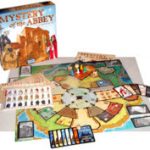
Bruno Faidutti begins with the controversial premise that "[e]very game tells a story," in his description of how he uses literary techniques to enhance gameplay - even in non-RPG systems such as board games, which don't traditionally include a story.
Creating a Meaning-Machine: The Deck of Stories Called Life in the Garden
Eric Zimmerman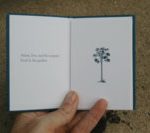
Eric Zimmerman describes his interactive paper book as "an inverted exquisite corpse," and although a digital version of the book would be easy to produce, he argues that an electronic edition would not produce as meaningful an experience as the printed volume.
“A realm forever beyond reach”: William Vollmann’s Expelled from Eden and Poor People
Jeff BurseyJeff Bursey argues for a coherent, if unlikely, set of predecessors for William T. Vollmann: Aleksandr Solzhenitsyn, Blaise Cendrars, and John Cowper Powys. In the process of tracing this genealogy, Bursey defends Vollmann against critics who attack his alleged objectification of his subjects - prostitutes, the poor, and victims of violence.
Structure and Meaning in Role-Playing Game Design
Rebecca Borgstrom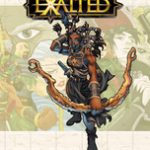
Using Exalted as her text, Rebecca Borgstrom begins with the premises that every role-playing game requires a setting, and that to establish a fictional world players work within a mutually agreed upon structure to construct meaning.
On Life’s Lottery
Kim NewmanKim Newman describes various methods of approaching his choose-your-own-adventure-style novel, which can be read or played because, like a role-playing game, "you are at once a reader and the main character."
Making Games That Make Stories
James Wallis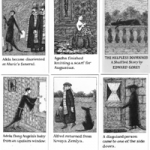
James Wallis uses genre as the fulcrum for balancing game rules and narrative structure in story-telling games, which he differentiates from RPGs through their emphasis on the creation of narrative over character development.
Inside God’s Toolbox
Jon AdamsJon Adams rifles through the instrument cabinet of the man upstairs by way of William J. Jackson's Heaven's Fractal Net. Adams finds more problems than solutions in Jackson's position that fractals are a fundamental and universal structure of life - a position Jackson stakes out by vacillating between scholarly proof and speculative guruism.
Black Postmodernism
Amy Elias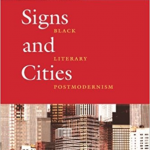
Amy J. Elias reviews Madhu Dubey's second book Signs and Cities: Black Literary Postmodernism and gauges the argument that we can locate within literary history a distinctive African American strain of postmodernism.
Storytelling Games as a Creative Medium
Will Hindmarch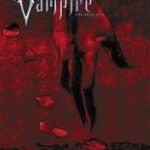
Will Hindmarch contests Greg Costikyan's challenge to the idea that "games have something to do with stories" by contending that "storytelling games reconcile the theoretically antithetical relationship between their two halves - story and game."
Games, Storytelling, and Breaking the String
Greg CostikyanGreg Costikyan revisits the narrative versus game-play debate that continues to be a staple of both Game Studies and Game Design. He presents a spectrum that ranges from game-focused forms to narrative-centric models, and suggests that free-form role-playing may be the most desireable marriage of narrative and game-play.
From the Basement to the Basic Set: The Early Years of Dungeons & Dragons
Erik Mona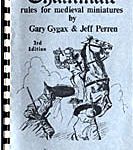
Erik Mona takes a first step toward measuring the cultural impact of Gygax and Arneson's Dungeons & Dragons by providing a pocket history of the game's generation and evolution. Mona explains the addition of character development as a game goal - the innovation that distinguishes D&D from its predecessors, and started the role-playing revolution.
Narrative Structure and Creative Tension in Call of Cthulhu
Kenneth Hite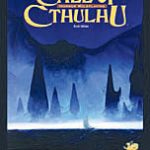
Kenneth Hite argues that the long-running, H.P. Lovecraft-inspired Call of Cthulhu franchise differs from traditional tabletop role-playing in its focus on suspense rather than character growth. Hite's analysis suggests that in its origins and emphasis on narrative structure Cthulhu is a highly literary game.
Playing with the Mythos
Van LeavenworthVan Leavenworth, in his response to Hite, delves more deeply into Cthulhu's literariness, in particular the "large adventure book 'footprint'" of the series. He contends that the Lovecraft mythos provides a framework for the generation of narratives that - unlike many RPG stories - hold up beyond the game-play session.